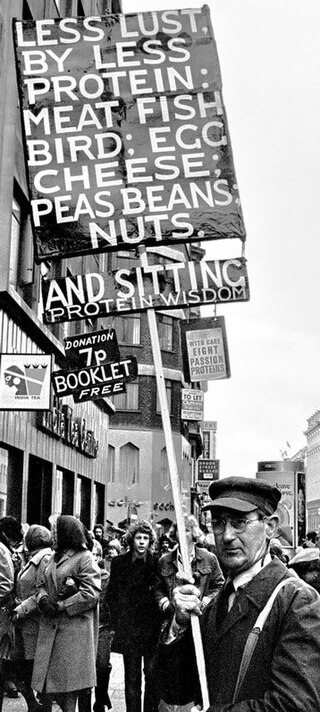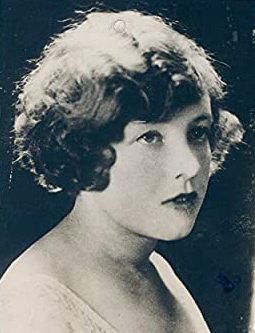
Brewer's Dictionary of Phrase and Fable, sometimes referred to simply as Brewer's, is a reference work containing definitions and explanations of many famous phrases, allusions, and figures, whether historical or mythical.

Charles William Donaldson was a British satirist, writer, playboy and, under the pseudonym of Henry Root, author of The Henry Root Letters.
James "Jemmy" Hirst (1738–1829) was an English eccentric.

Sir Leo George Chiozza Money, born Leone Giorgio Chiozza, was an Italian-born economic theorist who moved to Britain in the 1890s, where he made his name as a politician, journalist and author. In the early years of the 20th century his views attracted the interest of two future Prime Ministers, David Lloyd George and Winston Churchill. After a spell as Lloyd George's parliamentary private secretary, he was a Government minister in the latter stages of the First World War. In later life the police's handling of a case in which he and factory worker Irene Savidge were acquitted of indecent behaviour aroused much political and public interest. A few years later he was convicted of an offence involving another woman.
Brewer's Dictionary of Irish Phrase and Fable (ISBN 0-304-36334-0) was created by Jo O'Donoghue and Sean McMahon for the Brewer's Dictionary of Phrase and Fable series of books. It contains over five thousand entries regarding various subjects about Ireland and its sayings, myths, legends and fables.

Stanley Owen Green, known as the Protein Man, was a human billboard in central London in the latter half of the 20th century. One writer called him "the most famous non-famous person in London". According to Lynne Truss, Green became such a ubiquitous figure in and around Oxford Street in the West End that he was "present in every black-and-white picture of London crowds that one has ever seen".

Donald William Sinclair was the co-proprietor of the Gleneagles Hotel in Torquay, Devon, England. He helped manage the hotel after an extensive career as an officer in the Merchant Navy and the Royal Navy. During the Second World War, Sinclair twice survived the sinking of the ships on which he was serving.
Adam the Leper was the leader of a fourteenth-century robber band, operating in South East England in the 1330s and 1340s. Like the north Midlands bandits Eustace Folville and James Cotterel, he and his gang specialised in theft, especially directed against the royal court and its agents. Unlike these contemporaries, he seems to have concentrated mainly on urban centres. The best documented of his crimes involved a night-time attack against a London merchant with ties to Philippa of Hainault, Queen consort of Edward III. According to Luke Owen Pike, while the trader was holding a number of the queen's jewels in safekeeping, Adam and his gang laid siege to his house, demanding Philippa's property be surrendered to them. When the man refused, his house was set alight, and the treasure seized by force. This was the most serious loss of royal property through criminal seizure since Richard of Pudlicott's attack on the treasury of Edward I in 1303.
Lieutenant-Colonel Sir Walter Henry Bromley-Davenport TD DL was a British Conservative Party politician.
The Arifs are a South East London-based Turkish criminal organization heavily involved in armed robbery, drug trafficking and other racketeering-related activities within London's underworld since the late 1960s. Following the downfall of the Kray brothers, the Arifs were one of several criminal organisations who took control of the London underworld including the Clerkenwell crime syndicate and the Brindle family with whom they were engaged in a highly publicised gangland war during the 1990s.
The Birmingham Boys were a street gang whose power extended from the North of England to London's underworld, between the 1910s and 1930s. They lost control of the South East racecourses to the Sabini gang. In modern times they gained recognition due to the TV series Peaky Blinders.
The Hoxton Gang was an independent street gang based in London's Soho district during the interwar years. They were one of several gangs which fought against Charles "Darby" Sabini and the "Italian Mob", specifically over control of gambling clubs or "spielers".
Beauchamp Bagenal was an Irish rake, buck, duelist, and politician.

Lord Gordon-Gordon, also known as Lord Gordon Gordon, Lord Glencairn, and The Hon. Mr. Herbert Hamilton, was a British impostor responsible for a major swindle in 19th century United States. He swindled a million dollars from Jay Gould, who was fighting for control of the Erie Railroad, and then fled to Canada. Gould and associates attempted to kidnap him but were arrested themselves, which nearly caused a military confrontation between the United States and Canada.

Eliahu Elath was an Israeli diplomat and Orientalist. In 1948 he became the first Israeli ambassador to the United States, and between 1950 and 1959, he was Israel's ambassador to the United Kingdom. He was the President of the Hebrew University of Jerusalem from 1962 to 1968.
Captain James Carr-Boyle, 5th Earl of Glasgow, styled Viscount of Kelburn from 1818 until 1843, was a British naval commander and politician.
Margaret Fernseed was an English prostitute, brothel-keeper, and murderer.

Irene "Marjorie" Savidge became Irene Gentle was a British factory worker and subject of police interrogation who became involved in a scandal. A charge of indecency against her and Sir Leo Chiozza Money was dismissed by magistrates, but she was later detained again and subjected to a five-hour interrogation by male officers. Her complaints led to a public inquiry concerning police procedures and later a royal commission.








